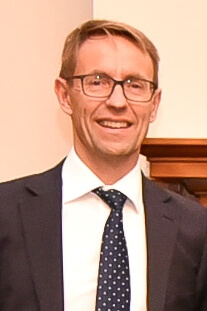Waipā District Council should stop work on plans to put fluoride into Cambridge water pending a final court decision, a local body politician says.
But the health ministry is telling 14 councils its orders to add fluoride remain in place.
Kane Titchener spoke to The News this week in the wake of a High Court decision which found outgoing Director General of Health Ashley Bloomfield jumped the gun in ordering those 14 councils to put fluoride into water.
Justice Radich says Bloomfield was required by law to consider the New Zealand Bill of Rights Act, and didn’t.
The fluoride order was made on July 27, 2022, and incorporated society New Health, which opposes the fluoridation of water, challenged the South Taranaki District Council’s plans to add it to water in Pātea and Waverley.
A judicial review of the Supreme Court’s decision to reject New Health’s case ruled in the society’s favour on November 10.
Titchener is deputy chair of the Te Awamutu and Kihikihi Community Board and a member of Fluoride Free New Zealand.
He was measured in his responses when talking to The News this week, saying things were “still up in the air” and there was still a final ruling to come.
“Despite not being final, it is still very good news and another step in stopping fluoridation starting in Cambridge and ultimately New Zealand.
“I would expect council to consider ceasing any further ratepayer spend until the final decision on the direction is confirmed by either the parties involved or the Judge.”
The Health Ministry, however, is arguing work should continue as normal.
A letter from Director General of Health Diana Sarfati to council chief executive Garry Dyet dated last Friday said the judgement’s implications were being considered.
But “Manatū Hauora [the Ministry of Health] will continue to support you to implement your direction, including by providing funding for the capital works”.
The 14 councils have been told they can apply for a slice of an $11.3 million pie to do the work.
Sarfati wrote the decision pertained to the process used “in deciding a direction… the judgment is not about the public health merits of fluoridation or whether fluoridation can be justified under the New Zealand Bill of Rights Act 1990”.
In July the council reported it had advised the ministry it would take at least nine months to add fluoride to the Cambridge water supply.
It prefaced comments by declaring “this is not a council decision. The law was changed in November 2021 and it is now the Ministry of Health that makes all decisions around fluoride”.
To emphasise that sentence, the council capitalised the words not and all.
Waipā water has never been fluoridated. The News has earlier reported the estimated costs for Cambridge, which would include the Karāpiro and Alpha Street plants, would be $480,000 and operating costs would be $130,000 a year.











